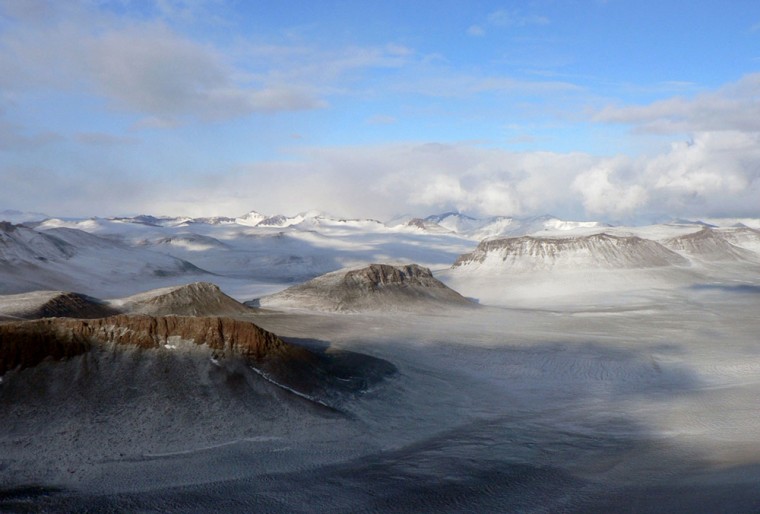Mosses once grew and insects crawled in what are now barren valleys in Antarctica, according to scientists who have recovered remains of life from that frozen continent.
Fourteen million years ago the now lifeless valleys were tundra, similar to parts of Alaska, Canada and Siberia — cold but able to support life, researchers report.
Geoscientist Adam Lewis of North Dakota State University was studying the ice cover of the continent when he and co-workers came across the remains of moss on a valley floor.
"We knew we shouldn't expect to see something like that," Lewis said in a telephone interview.
The moss was essentially freeze dried, he said. Unlike fossils, where minerals replace soft materials, the moss tissues were still there, he said.
"The really cool thing is that all the details are still there," even though the plant has been dead for 14 million years. "These are actually the plant tissues themselves."
Lewis' findings are reported in Tuesday's edition of Proceedings of the National Academy of Sciences.
While some mosses have been found near the coast of Antarctica, as well as insects living on sea birds, this site is well inland.
Further study uncovered remains of tiny crustaceans known as ostracodes, small midges and beetles, and pollen from southern beech trees and pink plants.
"The existence of wet-based glaciers, proglacial lakes, tundra vegetation and insect remains all indicate that the climate of the western Olympus range ... was warmer and wetter that that of today" about 14 million years ago, the researchers report.
It's important to know that because it adds to the understanding of the Earth's climate system, Lewis explained.
For 50 million years the Earth has been cooling, he said. "As it cools it crosses thresholds. This is one, when Antarctica became permanently frozen and locked up."
"You have to understand where these thresholds are," he added, "Because, if human beings are unfortunate enough to push climate over one of these thresholds, it could be a total catastrophe."
The research was supported by the National Science Foundation.
